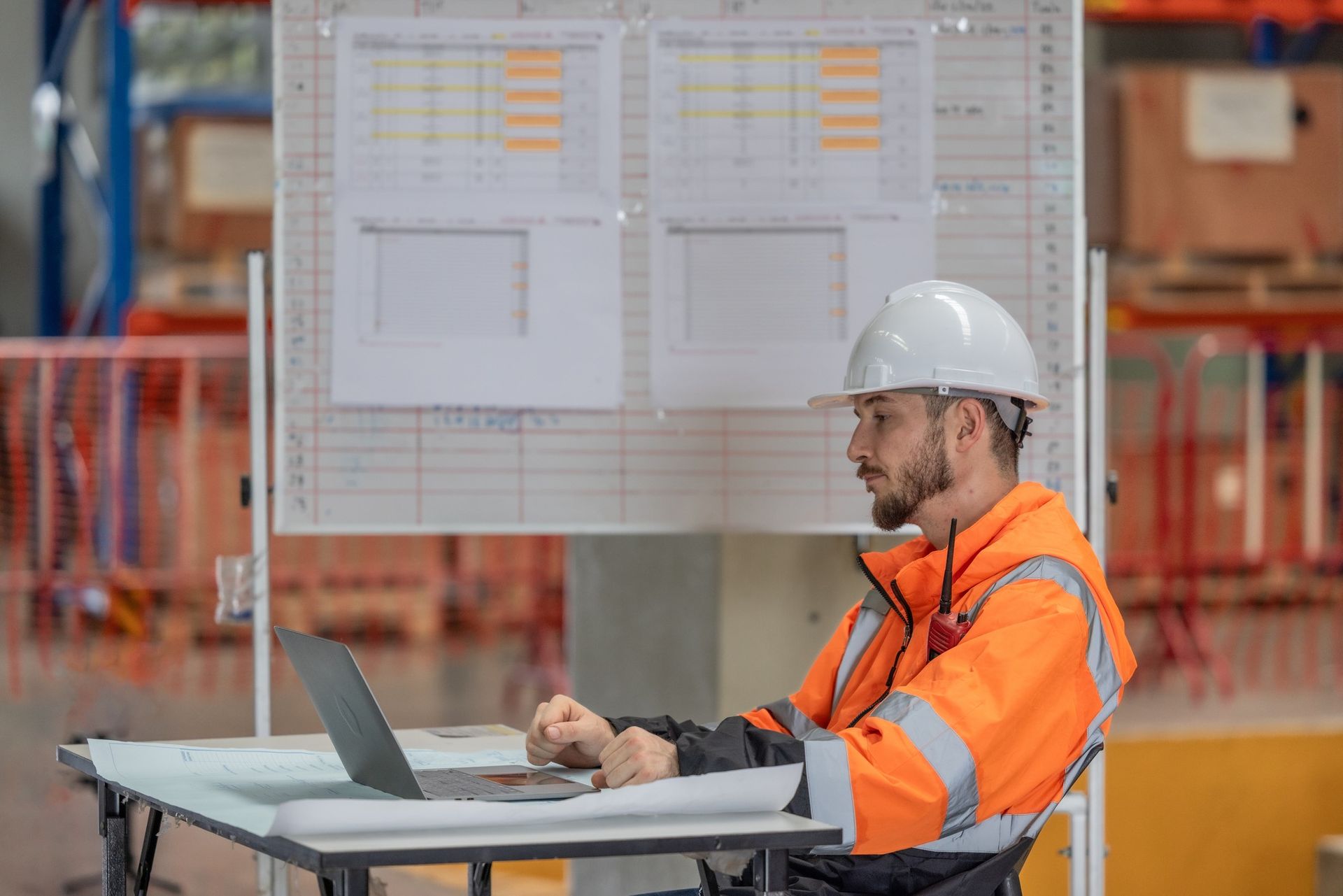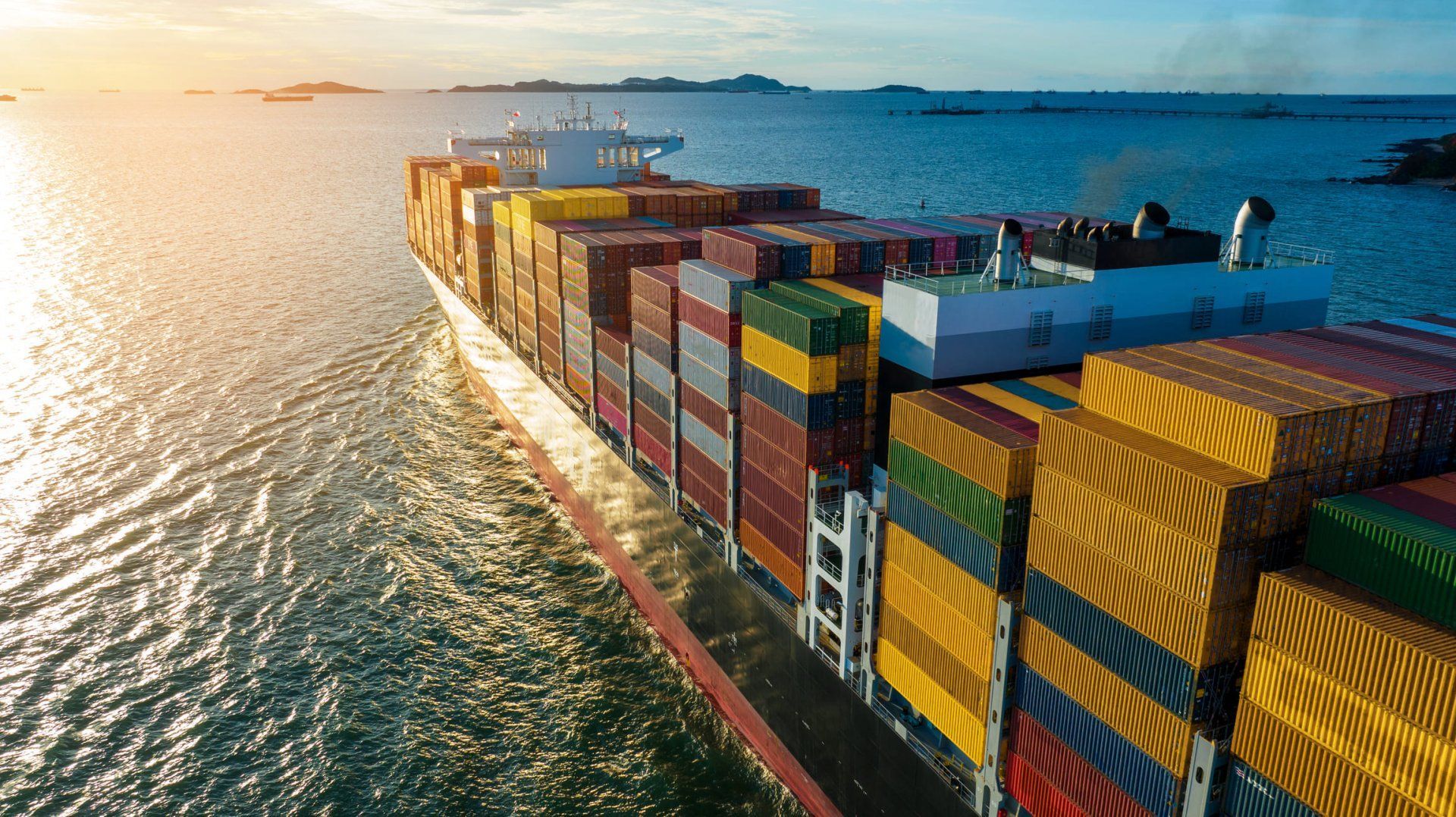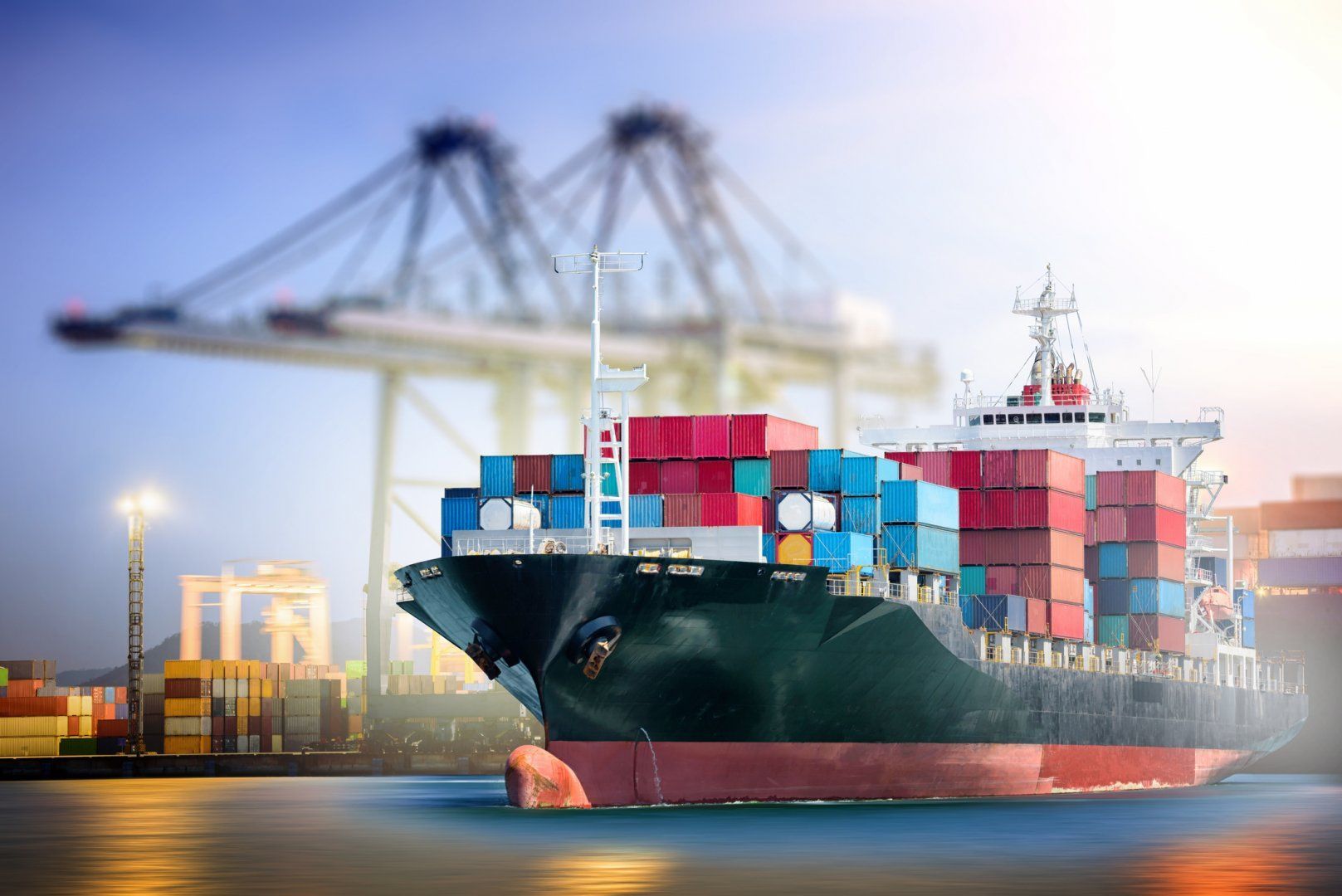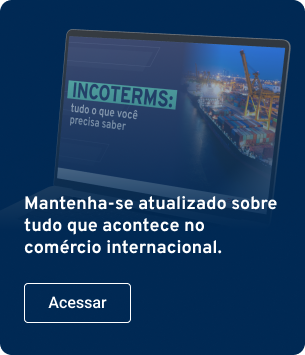Stay up to date with the latest news and articles from the world of logistics
Discover how Allink is transforming the logistics landscape by checking out the knowledge shared by our team of experts below.

Customs brokers are essential professionals in international trade, acting as intermediaries between companies and government agencies responsible for customs control. They represent importers, exporters, and other stakeholders in international trade operations, ensuring that all stages of the process comply with current regulations. Their role ranges from declaring imports and exports in systems such as Siscomex and the Single Window to applying for licenses from regulatory bodies like ANVISA, INMETRO, and MAPA. The Importance of a Customs Broker Goes Beyond Legal Representation They are responsible for ensuring that international trade operations are conducted safely, efficiently, and legally. This includes verifying documents, classifying goods for tax purposes, calculating taxes, and overseeing the entire customs clearance process. In a country like Brazil, where bureaucracy is significant, these professionals play a crucial role in preventing fines, delays, and other setbacks that could negatively impact import and export operations. The Role of an NVOCC in International Trade The NVOCC (Non-Vessel Operating Common Carrier) is becoming an increasingly relevant player in international trade, especially in maritime cargo transportation. Unlike traditional shipping companies, the NVOCC does not own vessels but acts as a cargo consolidator, offering logistics services that include grouping shipments from different clients into a single container. This method, known as LCL (Less than Container Load), is particularly advantageous for businesses importing or exporting small quantities of goods, as it helps reduce costs and optimize container space. The NVOCC serves as an intermediary between clients and shipping companies, managing the entire transportation process, from cargo collection in the country of origin to final delivery. This includes container stuffing, transshipment at intermediate ports, cargo deconsolidation, and final delivery to customers. Additionally, the NVOCC is responsible for all the necessary documentation for international transport, ensuring compliance with regulations in each country involved in the operation. Benefits of an NVOCC for Customs Brokers The partnership between customs brokers and NVOCCs can bring numerous benefits to both parties, particularly in terms of efficiency and cost reduction in foreign trade operations. For customs brokers, the NVOCC provides support in complex processes such as cargo consolidation and document management, allowing them to focus on their core responsibilities, such as tax classification and customs clearance monitoring. One of the main advantages of this partnership is cost reduction for customs brokers' clients. By consolidating shipments from different companies into a single container, the NVOCC enables shared freight costs, making maritime transport a more affordable option for small and medium-sized importers. Furthermore, the NVOCC handles all logistics, including stuffing and deconsolidation of cargo, which reduces the workload for customs brokers and speeds up the customs clearance process. The NVOCC is also responsible for all necessary documentation for international transport, including issuing Bills of Lading (B/L). Why Invest in Strategic Partnerships with NVOCCs? Investing in strategic partnerships with NVOCCs can be a competitive advantage for customs brokers, especially in an increasingly globalized and competitive market. Collaboration between these two entities creates a more efficient and integrated logistics chain, where each party contributes its expertise to ensure the success of international trade operations. One of the key benefits of this partnership is time optimization. With the NVOCC managing transportation logistics and documentation, customs brokers can focus on their primary activities, such as tax classification and customs clearance monitoring. This not only increases process efficiency but also allows brokers to serve more clients, boosting their profitability. Additionally, partnering with an NVOCC enhances the security and reliability of operations. The NVOCC ensures that goods are transported safely and in compliance with international regulations, reducing the risk of damage, theft, and other issues that could negatively impact foreign trade operations. This is particularly important in a landscape where cargo security is a constant concern for importers and exporters. Finally, partnering with an NVOCC can provide a competitive edge for customs brokers. By offering a more comprehensive and integrated service, brokers can differentiate themselves in the market, attract more clients, and strengthen their reputation as reliable and efficient professionals. This is especially relevant in a market where service quality is a decisive factor in choosing a customs broker. Conclusion The partnership between customs brokers and NVOCCs is a powerful strategy to optimize foreign trade operations, reduce costs, and increase efficiency. By combining the customs expertise of brokers with the logistics capabilities of NVOCCs, a more integrated and efficient supply chain can be created, benefiting both professionals and their clients. If you are a customs broker or a freight forwarder, consider investing in strategic partnerships with NVOCCs to elevate your service quality and stand out in the market.

LCL (Less than Container Load) cargo consolidation is a key logistics strategy for freight forwarders and brokers looking to reduce costs, optimize resources, and promote sustainable practices in maritime transport. This practice involves grouping goods from different companies into the same container, maximizing efficiency while minimizing expenses. This article explores how to implement this method effectively, alongside its benefits and challenges. What is LCL Cargo Consolidation? LCL cargo consolidation allows different companies to share space in the same shipping container, managed by NVOCCs (Non-Vessel Operating Common Carriers). The primary appeal of this model is cost savings, as expenses are shared among participants based on the space occupied. However, it’s not a one-size-fits-all solution; fragile, perishable, or specialized cargo may not be compatible with this method. Can Any Cargo Be Shipped via LCL? Not all cargo is suitable for LCL shipping. Some goods have sanitary restrictions, are too fragile, or require refrigeration. Understanding the cargo and its requirements is essential, as it will share container space with other goods. Partnering with an experienced NVOCC can help identify the best options for your business and ensure a smooth process. Benefits of LCL Consolidation in Imports Cost Reduction LCL consolidation significantly lowers shipping costs by splitting transportation expenses among companies sharing the container. Shorter Wait Times For importers with smaller shipments, LCL reduces the need to accumulate large cargo volumes or over-purchase just to fill a container. By paying only for the space used, smaller shipments become financially viable, also reducing excess inventory. Environmental Impact Reduction LCL consolidation promotes sustainability by reducing the number of containers shipped and associated carbon emissions. How to Optimize LCL Consolidation Know Your Cargo Evaluate the product’s characteristics and shipping requirements. Incompatible goods may compromise the consolidation. Plan Dimensions and Weight Provide accurate dimensions and weights to avoid delays or additional costs. Choose the Right LCL Service Opt for direct services to minimize transit time and handling, reducing risks of damage. Assess Loading/Unloading Terminals Ensure the terminal chosen by the NVOCC has suitable facilities for container handling. Regularly Monitor Performance Review service providers periodically to identify improvements and avoid recurring issues. Challenges and How to Overcome Them 1. Customs Retention and Supply Chain Delays If one shipper fails to meet regulatory requirements, the entire container may be delayed. Mitigation Ensure all documentation is complete and accurate before shipment. Work with experienced freight agents and NVOCCs. 2. Risk of Damage or Loss Sharing space increases the risk of damage from poorly packaged or incompatible cargo. Mitigation Invest in proper packaging and coordinate with the NVOCC to ensure compatible storage conditions. 3. Coordination and Communication Effective communication between shippers, logistics operators, and recipients is crucial to avoid delays or unexpected costs. Mitigation Choose reputable NVOCCs with their own services and reliable processes. Conclusion LCL cargo consolidation is a strategic solution for companies aiming to reduce costs, optimize logistics, and promote sustainability. With proper planning, reliable partners, and continuous monitoring, LCL can transform logistics into a more efficient and competitive process.

In the complex international logistics network, choosing the right NVOCC can be the difference between an efficient operation and a series of challenges. It’s like putting together a complex jigsaw puzzle, where each piece needs to fit together perfectly to ensure the success of the operation. In this article, we’ll explore the essential aspects to consider when selecting the ideal logistics partner for your business needs. How to choose the ideal NVOCC Experience and reputation When choosing an NVOCC, it is crucial to look for a company with extensive experience in the market and a solid reputation. After all, carrying out your international transport operations with a reliable partner is essential to ensure the success and efficiency of your business transactions. Choosing an NVOCC with proven experience and a well-established reputation means having the peace of mind that your LCL cargo will be managed by qualified professionals who understand the challenges and nuances of LCL maritime transport. Therefore, when evaluating different NVOCC options, take into account the track record and reputation of each company in the market, thus ensuring a solid and secure partnership for your logistics needs. Allink, with its 30 years of experience in the sector, stands out as a reliable and secure choice. Recognized by the market for its transparency and, above all, for its commitment to all processes. LCL cargo consolidation capacity Another key aspect in choosing the right NVOCC is to assess its LCL cargo consolidation capabilities. A company that is competent in this regard is able to maintain its weekly services and handle all the logistics for LCL cargo. This not only maximizes transportation efficiency but also reduces operational costs for each client involved. An NVOCC that is efficient in cargo consolidation demonstrates its ability to handle varying volumes and coordinate different shipments strategically. This capability not only provides significant economies of scale but also ensures an equitable distribution of transportation costs among clients, making the service more affordable and advantageous for all involved. Therefore, when selecting an NVOCC, be sure to check its competence in consolidating cargo efficiently, thus ensuring more effective and cost-effective logistics for your business operations. Expertise em regulamentações e documentação Certificar-se de que o NVOCC possui expertise em regulamentações e documentações voltadas ao transporte marítimo LCL é fundamental para garantir conformidade e evitar contratempos alfandegários. Uma empresa que domina as complexidades das regulamentações de transporte e está atualizada com as exigências documentais pode garantir que todas as etapas do processo de transporte ocorram sem problemas. A habilidade do NVOCC em lidar com uma variedade de regulamentações, desde requisitos de transporte na importação e exportação até normas de segurança e conformidade, é essencial para garantir que as mercadorias sejam transportadas de forma legal e eficiente. Portanto, ao escolher um NVOCC, é importante verificar sua expertise em regulamentações e documentação, garantindo assim uma operação de transporte internacional livre de complicações legais e alfandegárias. Cobertura geográfica e parcerias estratégicas Verificar a abrangência geográfica e as parcerias estratégicas do NVOCC é essencial para garantir acesso a diversos destinos e origens. Uma extensa rede de operações e parcerias sólidas com companhias de navegação em todo o mundo podem significar a diferença entre uma logística eficiente e restrições geográficas. Um NVOCC com uma ampla cobertura geográfica pode oferecer mais opções de rotas e destinos, adaptando-se melhor às necessidades específicas de cada cliente. Além disso, parcerias estratégicas com agentes locais em diferentes países garantem suporte local e conhecimento especializado em cada mercado, facilitando o processo de transporte.. Portanto, ao escolher um NVOCC, é importante avaliar sua cobertura geográfica e suas parcerias estratégicas, garantindo assim uma logística internacional eficiente e abrangente. Flexibilidade e adaptabilidade operacional Priorizar um NVOCC com flexibilidade e adaptabilidade operacional é crucial para lidar com as demandas de um mercado em constante mudança. A capacidade de se ajustar rapidamente às flutuações na demanda, condições climáticas imprevistas, mudanças regulatórias e outros desafios é essencial para garantir uma operação logística eficiente e sem contratempos. Um NVOCC flexível pode oferecer soluções personalizadas para atender às necessidades específicas de cada cliente, seja ajustando rotas de transporte, ou fornecendo alternativas criativas para superar obstáculos inesperados. Além disso, a adaptabilidade operacional permite uma resposta rápida a eventos imprevistos, minimizando o impacto nas operações e mantendo o fluxo de mercadorias sem interrupções. Portanto, ao escolher um NVOCC, é fundamental considerar sua flexibilidade e adaptabilidade operacional, pois essas qualidades são essenciais para garantir uma logística eficiente e resiliente em um ambiente comercial dinâmico e desafiador. Transparency and communication When selecting an NVOCC, it is essential to choose a company that values transparency and maintains effective communication throughout all stages of the logistics operation. Transparency ensures that all relevant information is shared in a clear and accessible manner, allowing for a complete understanding of the processes and procedures involved. Effective communication is essential to keep all parties involved informed about the status of the shipment, any delays or issues, and any other important issues that may arise throughout the process. This helps to avoid misunderstandings, allows for a quick response to unforeseen situations, and promotes customer trust and satisfaction. Therefore, when choosing an NVOCC, it is crucial to look for a company that prioritizes transparency in its operations and maintains open lines of communication with its customers and partners, ensuring efficient collaboration and a positive logistics experience across the board. Customer Support Evaluating the customer support provided by the NVOCC is crucial to ensuring a smooth and efficient logistics experience. It is essential to choose a company that offers dedicated and personalized support that can meet the specific needs of each customer. Good customer support is not limited to answering questions or resolving issues, but also involves providing proactive guidance, offering personalized solutions, and being available to assist at every stage of the logistics operation. When choosing an NVOCC, it is important to look for a company that values customer relationships and is committed to providing exceptional support, ensuring that your needs are met quickly, efficiently, and satisfactorily. Technology and innovation Analyzing the technology and innovation implemented by the NVOCC is essential to ensure efficiency and safety in its logistics operations. An NVOCC that invests in technology and innovative solutions is able to offer a more agile, accurate and reliable logistics experience to its customers. The integration of transportation management systems, online platforms and other technological tools can optimize the flow of information, increase supply chain visibility and reduce the risk of errors or delays. Therefore, when choosing an NVOCC, it is important to evaluate its technological infrastructure and its commitment to innovation, looking for partners that are at the forefront of technological solutions in the logistics sector. This ensures not only efficient operations in the present, but also paves the way to face the challenges and seize the opportunities of the future. Risk and contingency assessment Ensuring that the NVOCC has undertaken a comprehensive risk assessment and has contingency plans in place is crucial when choosing a logistics partner. International transport is subject to a range of risks, including transport delays, cargo damage and unforeseen weather events. A prepared and proactive NVOCC should be able to identify and assess these potential risks, implementing effective preventative measures and contingency plans. This includes having clear procedures in place to deal with emergencies such as accidents during transport, strikes or disruptions to shipping routes. When evaluating an NVOCC, it is essential to ask about their risk and contingency management policies, as well as their past experience in dealing with adverse situations. Choosing a partner with a proactive approach to risk mitigation provides peace of mind and security for your international logistics operations. Other fundamental elements When choosing an NVOCC, it is essential to prioritize those with a strong commitment to sustainability. This includes implementing green practices to reduce the environmental impact of logistics operations, such as using cleaner and more efficient technologies, optimizing routes to reduce carbon emissions, and investing in environmental offsetting initiatives. In addition to considering the rates offered by the NVOCC, it is crucial to evaluate the total costs involved in its operations. This includes not only direct transportation costs, but also operational costs such as additional fees, storage, and cargo handling. In addition, consider the added benefits, such as operational efficiency, reliability, and quality of service provided. Finally, verifying that the NVOCC complies with international trade rules and regulations is essential to ensure quality and safety standards in its operations. Meet Allink Allink stands out as a neutral provider of consolidated LCL and FCL cargo transportation services. With a 30-year history, the company is recognized for its transparency and commitment in all processes, being one of the leading companies in LCL cargo transportation. Part of the renowned Wilson Sons Group, with over 180 years of history, Allink stands out for its neutrality in the segments in which it operates, being a reliable partner for freight forwarders and customs brokers.

International trade plays a key role in global economic development. With the increasing demand for products and services in different parts of the world, maritime transport has become one of the main options for moving goods on a large scale. In this scenario, NVOCC shipping companies have played a vital role in facilitating and optimizing the logistics of international transport. What is an NVOCC? An NVOCC, which stands for “Non-Vessel Operating Common Carrier,” refers to an intermediary company in the world of maritime transportation. While shipowners own and operate vessels, NVOCCs have a different specialization: they manage the logistics of transportation. Think of them as conductors, consolidating cargo from different customers to fill entire containers before forwarding them to their final destination. Here’s an interesting detail: NVOCCs don’t own their own vessels. But that doesn’t stop them from being efficient. Thanks to their strategic partnerships with several shipping lines, they are able to offer both reliable and comprehensive transportation services. The Importance of NVOCC in International Transport: Global Trade Facilitation Did you know that NVOCC is a true player when it comes to simplifying international transportation? It not only simplifies bureaucratic processes but also efficiently coordinates the various agents that move cargo. And it doesn't stop there. With an extensive network of partners and unparalleled expertise, NVOCC offers tailored logistics solutions, precisely meeting the specific demands of each client. Load Optimization Have you heard about how NVOCCs are masters of the art of optimizing cargo? They have the unique ability to bundle cargo from multiple exporters into full containers, a strategy called cargo consolidation. This trick not only maximizes the use of each container, but also lowers transportation costs for each customer. And, as a bonus, it prevents any space on the ships from going to waste. Cost Reduction and Economies of Scale NVOCCs are really skilled when it comes to consolidating cargo, and this brings with it a major advantage: remarkable economies of scale. And the best part? They don’t keep it to themselves. These savings translate into more competitive freight rates for their customers, opening the door for companies of all sizes or sectors to enjoy more affordable international shipping. Expertise in Regulations and Documentation Each country has its own set of regulations and documentation, which makes international trade quite complex. But here’s where NVOCCs shine: they’ve mastered this complicated art. Not only do they know the ins and outs of each requirement, they also make sure that all the documents are in order. The result? Smoother shipping, with no headaches from customs delays or setbacks. Wide Geographic Coverage NVOCCs have a global reach. Thanks to their alliances with multiple shipping lines and an incredibly extensive network of shipping agents, they can take you to any corner of the planet. And don’t just think about popular destinations; they also dominate the most unique or emerging routes. Flexibility and Adaptability The world of international trade is constantly evolving. And in this dynamic scenario, companies are looking for logistics partners who can move with the flow. This is where NVOCCs stand out. They not only have flexibility in their veins, but also the agility to shape their operations according to market demands, always one step ahead. Conclusion International transportation plays a crucial role in global economic development, and NVOCCs have become a key player in this scenario. Their logistics expertise, cargo consolidation capabilities, cost reduction, regulatory compliance and risk management are key aspects that drive the efficiency and effectiveness of global freight transportation. Companies looking to expand their business beyond national borders can benefit significantly from partnering with a reliable and experienced NVOCC. These logistics agents can provide a competitive advantage by ensuring on-time deliveries, reducing operating costs and allowing companies to focus their efforts on growing their business in increasingly demanding international markets.

Have you ever stopped to think about the importance of container unloading in LCL mode? This fundamental process in maritime transport involves the careful removal of products and cargo from inside the container, requiring special attention to ensure the integrity of the items and the efficiency of the service. In this article, we will explore the importance of container unloading in LCL mode, understand how it is carried out and highlight why it is crucial to have reliable partners during the import process. Get ready to discover how correct unloading and the strategic choice of partners can positively impact the entire import logistics chain. Let's dive into this subject and understand why container unloading in LCL mode is a key factor for the success of imports. What is container spawning? Container unloading is the procedure for removing products and cargo from inside the container, and it is essential that it is carried out in an appropriate and systematic manner. Unloading is the opposite step to stuffing, which consists of organizing and positioning the cargo carefully and systematically inside the container, aiming at safety during transportation. Therefore, the unloading process requires attention and care, and it is necessary to undo all the stowing procedures carried out during stuffing. The use of appropriate equipment, such as forklifts and specialized machines, is essential to optimize time and ensure efficiency during the process. How is container unloading done in LCL mode? Container unloading in the LCL modality is carried out according to the particularities of each region and port, taking into account the regulations of the Federal Revenue Service. An example of this variation can be seen in Rio Grande do Sul, where, upon docking at the unloading point, the LCL container is segregated in a specific area and the terminal performs the unloading with care and attention, ensuring that the cargo is available for importers. The next step is the action of the customs broker, responsible for customs clearance. In Itajaí, there is an additional particularity, in which the container can only be opened with authorization from the Ministry of Agriculture. In this context, it is extremely important to select a suitable terminal, which offers operational security, adequate physical infrastructure and concern for legal aspects, in addition to guaranteeing the preservation of the importer's data. This strategic choice aims to ensure compliance with customs requirements and other regulations, as well as guaranteeing the integrity of the cargo throughout the unloading process. The importance of correct spawning in the LCL modality Proper unloading in LCL mode plays a fundamental role in ensuring the proper completion of the maritime transport service. The import process begins with the contracting of appropriate partners, continues with the loading and transportation of the container and ends with unloading. In the case of LCL cargo, there is no fixed standard for unloading. This is due to the wide variety of materials that can be transported in this mode, which results in varying requirements in terms of equipment needed to perform unloading. This is why proper unloading in LCL mode requires dedicated work to analyze the particularities of each cargo transported. In this sense, advance planning is essential. It is necessary to understand the characteristics of the cargo, such as fragility, dimensions, weights and any special needs, in order to determine the appropriate equipment for unloading. This detailed analysis ensures that the process is carried out efficiently and safely. In addition, proper unloading also involves compliance with all legal and regulatory requirements applicable to the type of cargo. It is important to comply with customs, health and other specific restrictions imposed by the competent authorities. A well-executed unloading process helps to preserve the integrity of the cargo, avoiding damage, loss or unnecessary delays. In addition, an efficient unloading process enables the cargo to be made available to importers quickly, allowing them to carry out the next steps in their supply chain quickly and effectively. Therefore, correct unloading in the LCL modality is essential to ensure the success of the import process, guaranteeing the proper completion of the transport service and providing reliability and efficiency throughout the logistics flow. Why is it important to pay special attention to the spawning terminal? It is extremely important to pay special attention to the LCL unloading terminal. Importers often prioritize only the freight cost when choosing an NVOCC and forget to consider all the factors involved in choosing a service provider, such as the terminal that will perform the unloading. A crucial aspect that a terminal must offer is compliance, that is, a special commitment to the security of customer data, as well as its infrastructure to support the unloading process with excellence. It is essential to be sure that the chosen terminal has the capacity to guarantee not only the physical security of the cargo, but also the security of information related to the shipment. This includes protection against data theft and other cyber threats, ensuring the confidentiality and integrity of information throughout the unloading process. Finally, operational security also plays a crucial role in choosing the unloading terminal. This includes not only the physical structure of the terminal, but also the way it operates. For example, it is recommended to choose terminals that offer a variety of larger scheduling windows. This allows for more flexible scheduling and avoids delays in receiving cargo at the factory. In short, paying special attention to the LCL unloading terminal is essential to ensure a safe, efficient and hassle-free operation. It is necessary to consider not only the freight price, but also compliance, the total costs involved and the operational security offered by the terminal. This careful approach contributes to a successful unloading and the overall success of the import process. Which companies perform container unloading in LCL mode? In the LCL modality, container unloading is a service performed by terminals and can be carried out by internal or outsourced labor. In public ports, this function is generally performed by unions. It is worth remembering that in LCL, the choice of the unloading terminal is the responsibility of the consolidator (also called NVOCC) for that shipment, and there is no possibility of changing terminals by companies that have cargo in the container. Why rely on trusted partners at LCL? Relying on reliable partners for imports is vital to ensuring the success and efficiency of the process. When dealing with imports, especially in the LCL modality, it is essential to choose reliable partners. The focus should not only be on the freight cost, but also on the NVOCC’s ability to facilitate unloading at a terminal that offers adequate storage, speed and bureaucratic compliance. Choosing a good NVOCC goes beyond the freight cost. It is necessary to consider the company’s expertise, its reputation in the market and its ability to offer integrated solutions that meet the client’s specific import needs. Reliable partners have solid knowledge of customs regulations and processes, in addition to having established relationships with reliable unloading terminals. By relying on reliable partners for imports, importers can expect a quality service that prioritizes cargo security, speed in unloading and compliance with all legal requirements. Reliable partners have a well-established network of operations, which results in greater efficiency and reduced risk throughout the import process. Allink is a company specialized in logistics solutions for imports, including LCL cargo transportation. With our expertise and market knowledge, we are prepared to take your cargo to reliable unloading terminals, ensuring efficient imports for our customers. Don't leave your imports to chance, choose reliable partners who offer integrated and customized solutions to meet your needs. Contact our experts at Allink and find out how we can help you improve your LCL cargo imports.

If your client imports in small quantities and needs to save on international transport, you've probably convinced them to bring their products in a container using the LCL (Less Container Load) format. Now, to win them over definitively, you'll understand why the work of an NVOCC, already known but still little understood, needs to be part of your business's DNA. Until recently, it was quite common for small quantities of goods to be imported by air. The cost was still worthwhile, not to mention the convenience related to the speed of transport. However, the reduction in the number of flights and high costs, especially fuel costs, have contributed to the shift from air to maritime transport. In this context, the LCL mode, which already existed but without much prominence, gains strength. Also known as "consolidated loose cargo," where exporters share the same container, LCL has several advantages, including: The fact that virtually all destinations and origins are possible in this mode; The absence of demurrage; And mainly, that LCL is the entry point for many businesses, what we call Trial Shipments. And it is precisely to transform all these advantages and opportunities of LCL into success that the NVOCC emerges. A term well-known in its abbreviated form, Non Vessel Operating Common Carrier, is a cargo consolidator company that maintains contracts with shipping companies to ship their consolidated containers.
Stay informed about foreign trade
Subscribe to our newsletter and receive free weekly updates about the world of logistics.




